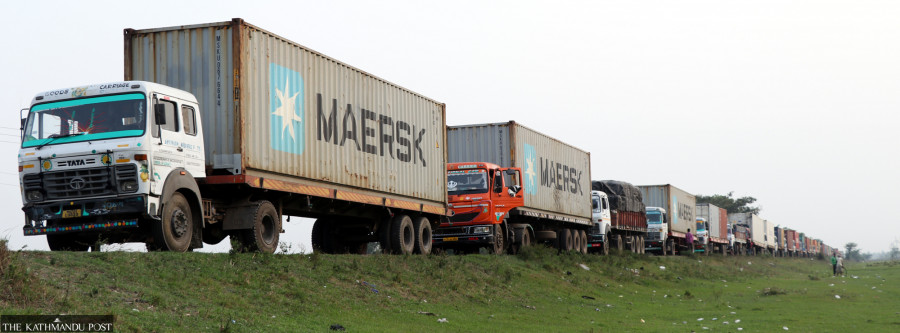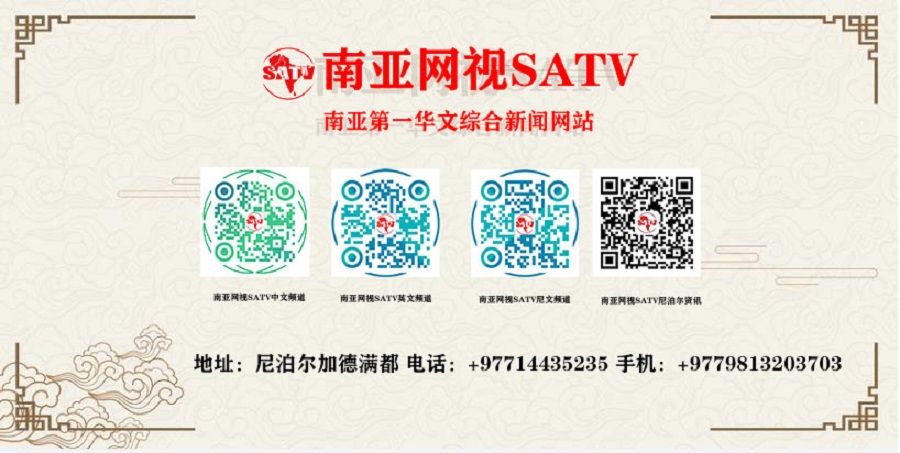
Frequent changes in government is another hurdle in the way of Nepal’s trade and economic prosperity, the report adds. POST FILE PHOTO
Nepal’s progress in industry and export remains “dreary” due to poor coordination between varied government agencies resulting in scanty to non-implementation of government policies, according to a research report.
The failure of industry promotion agencies under the Ministry of Industry, Commerce and Supplies and export promotion agencies under the Ministry of Finance to harmonise their actions has led to near zero implementation of a number of facilities created to promote industry and export, said the report entitled "Trade Policy Coherence and Coordination in Nepal: An Exploratory Assessment".
The report was jointly published by South Asia Watch on Trade, Economics and Environment (SAWTEE) and The Asia Foundation.
The Industry Ministry provides incentives as per the Industrial Enterprises Act while the Finance Ministry offers tax exemptions and concessions, and duty drawbacks as per the Income Tax Act, VAT Act and Finance Act.
The general belief in Nepal is that the last three pieces of legislation prevail in terms of determining what incentives should be provided to industry.
The report said that bad coordination between different government agencies and policy has made industry unsure of the incentives provided by law.
Former commerce secretary Purushottam Ojha said that inadequate consultation with the concerned stakeholders before finalising any policy creates problems later. “As a result, none of these agencies takes ownership of policy failure.”
According to Ojha, bureaucrats are also not serious about implementing the policies.
In many cases, the commitments made by the stakeholders when the policy was passed are forgotten. “Such policies come directly through the budget or other regulatory provisions unilaterally,” he said.
“Lack of coordination is a big issue among government bodies. As most of the goods listed in the Nepal Trade Integration Strategy (NTIS) are agricultural products, intervention from the Ministry of Agriculture and Livestock Development is required to achieve the export targets. But when the target is missed, the Industry Ministry is blamed, which is wrong,” Ojha said.
All stakeholders admit that the export targets set for the goods listed in the NTIS have not been achieved.
"It is important to make the concerned ministries and government bodies accountable for missing the goals. But there is always a blame game,” said Ojha.
Frequent changes in government is another hurdle in the way of Nepal’s trade and economic prosperity.
“The Industry Ministry is a key ministry; but from the political perspective, it has been given the lowest priority,” Ojha said.
The Sher Bahadur Deuba administration has not appointed a new industry minister since the previous incumbent Lekh Raj Bhatta left office in May 2021.
The ministry has been functioning without a head for nearly half a year which exhibits the government's lack of concern when the economy requires particular attention amid the coronavirus disaster.
Priorities also change with every change in government.
Nepal and Bangladesh had decided to sign their first preferential trade arrangement by the end of 2020, and negotiations were going on; but with a change in government, the issue too disappeared from view.
Different bilateral trade talks with India, the United States and China, among other trading partners, could not happen last year due to the rapid changes in government.
Many coordination mechanisms related to Nepal's international trade are largely non-functional.
According to the research report, industrial development and export promotion have been significant goals of Nepal's industrial policy, at least since 1992 when it rolled out the Industrial Enterprises Act 1992.
One of the major strategies for achieving these objectives has been providing incentives and facilities to industry. But procedural obstacles to receive some of the incentives promised are often insurmountable, partly because of lack of coordination in the implementation of incentives provided by law, the report said.
Nepal has a challenging time meeting requirements set for international trade. It has a hard time complying with Sanitary and Phytosanitary (SPS) and Technical Barriers to Trade (TBT) measures efficiently.
For a least developed country like Nepal which aspires to export many of its agricultural products, the problem is especially pronounced since almost all products attract some form of SPS measures.
“Lack of coordination has been affecting SPS and TBT administration, where coordination between government agencies is pivotal. Trade negotiation capacity and economic diplomacy also suffer from lack of coordination,” the report said.
Lack of coordination between customs and other government agencies prevents an efficient customs clearance process, thereby increasing costs and time for traders, said the report.
“In the lack of coordination among different government agencies, it has created issues in inland container depots (ICDs) and integrated check posts (ICPs), making them unable to manage current trade flows efficiently,” the report said.
Because of lack of coordination in trade negotiations, Nepal removed cereals and most other farm products from its sensitive list under the Agreement on South Asian Free Trade Area (SAFTA), even when Nepali farmers, most of whom are smallholders, have suffered from the onslaught of import competition, the report said.
There is a need for better coordination to address issues causing delays in the movement of export and import cargoes.
Nepal’s export subsidy schemes are unclear about their objectives, the report said. For example, it is not known whether the export subsidy is designed to promote exports in general or diversify exports and export destinations.
Another issue in the export subsidy scheme is that it provides an export subsidy on export value, rather than an incremental change in exports.
While Nepal's special economic zone (SEZ) plans can be traced back to 1998, the country is still grappling with various issues related to their proper functioning. Even the SEZs that have come into operation have failed to attract much industrial activity, and lack of funds is also believed to contribute to the delay in the construction of other such estates.
Lack of proper dialogue with the private sector and lack of coordination between government agencies has been a prime issue that impedes the effective operation of the SEZ, according to the report.













